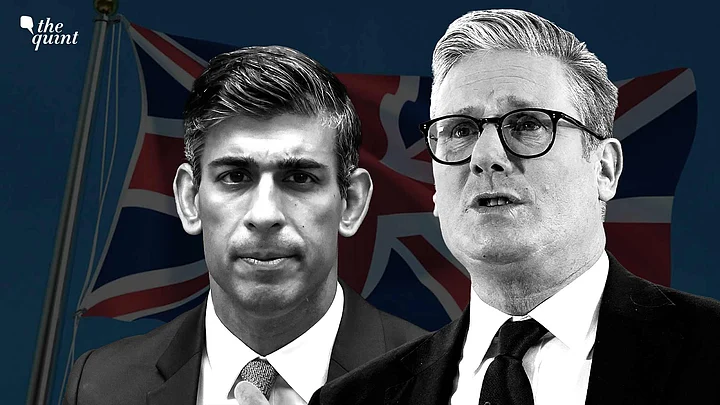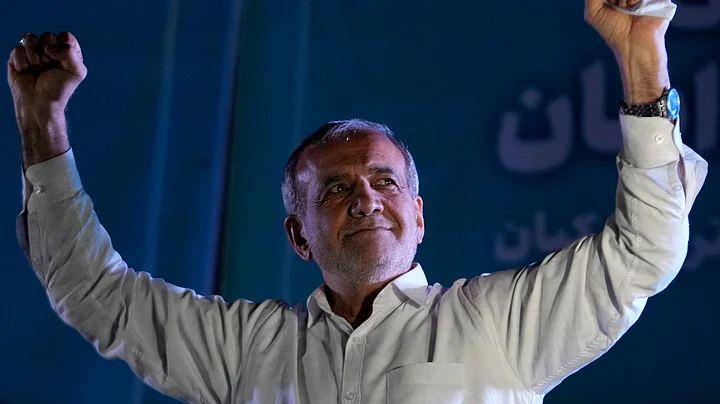First India, followed by the UK, Iran, and now France. The past month shows a clear pushback in some cases, and a triumph in others, of the progressive centre-left against the centre-right and far-right.
The shocking French election results are akin to the recent Indian elections, where no single party has won an absolute majority. Despite finishing first in the initial round of voting, the far-right National Rally slid back to third position with 143 seats, while the left-wing New Popular Front won 181 seats and President Emmanuel Macron’s centrist coalition, Ensemble, received 168 seats.
Like India, France’s parliament will have to work in a coalition, leading many observers to predict a period of instability in the country. Nonetheless, they opine it is better than the Marine Le Pen-led right-wing alternative.
In a congratulatory letter to the newly elected UK Prime Minister Sir Keir Starmer, India’s Leader of Opposition Rahul Gandhi wrote: “Your campaign’s emphasis on economic growth with equality, better opportunities for all through stronger social services, and community empowerment clearly struck a chord with the people of the UK, reflecting their aspirations for a brighter future… Your victory is a testament to the power of a politics that puts people first.”
The progressives in most countries may be feeling enthusiastic now, but the reality is that voters are still disillusioned and divided. The march of the right has slowed down, but not halted completely. In the UK, the far-right Reform Party has entered Parliament for the first time with 14 percent of the vote share. Its leader, Nigel Farage, plans to assume the role of the true opposition to the Labour government, displacing the diminished Conservatives, before the next election in 2029.
On the other hand, the Conservatives could lurch even further to the right with Indian-origin Tory MP Suella Braverman saying, “Our problem is us, our problem is the liberal Conservatives, who trashed the Tory party, think it’s everyone else’s fault except their own. My party governed as liberals and was defeated as liberals.”
In contrast, France succeeded in bringing the left and centre right to work together to thwart the extreme right. Tactically working, the New Popular Front and Macron’s party withdrew third-place candidates in over 200 constituencies where they feared a vote split that would benefit the National Rally.
Last week, Clément Beaune, a former Macron minister, warned that the far right in power would be “dramatic, not for the president or his party but for all the French.”
Although there is a fresh, transnational resurgence of the centre-left, each country faces a different outcome. India is governed by the right-wing BJP-led NDA, which is dependent on allies. The UK elected a strong and pragmatic centrist Labour government. Meanwhile, France has a deadlocked parliament with both the far left and far right gaining ground. While the political chaos infused by Brexit in 2016 may have ended in the UK, France is now faced with a period of instability with the centre ground shrinking.
President Macron refused the resignation of France’s Prime Minister, Gabriel Attal, after asking him on Monday to remain temporarily as the head of the government, “to ensure the stability of the country.”
The Economist points out: “Although Mr Macron will remain president, cohabitation (where the president and government are of different political stripes) or indeed a hung parliament are likely to lead to political deadlock in France. The president will have to appoint a new prime minister. He could nominate a technocrat or politician, and one in command of a parliamentary majority, or not. New elections cannot be called for at least a year and Mr Macron’s term officially ends in 2027.”
With a weakened centrist Macron and the UK out of the European Union, Trump in the White House again may make Europe further unstable.
As Gideon Rachman writes in the Financial Times, “A second Trump presidency would pose clear risks to the NATO alliance and the international trading system. That, in turn, would imperil Europe’s future prosperity and security. In theory, an obvious response to these common threats would be for France and Britain to work much more closely together — and to push for greater European cooperation to reduce the continent’s vulnerability to a more dangerous world. In reality, the recent shifts in the politics of both France and Britain will make that kind of cooperation much harder. If French foreign policy begins to reflect the priorities of the political extremes, that would create an obvious clash with the views of the new Starmer government in Britain.”
Currently, the centre-left has gained ground, but the centre-right is losing ground to the far-right, which makes it necessary for the centre-left and centre-right to work together. Despite the resurgence of the left, coalitions appear to be the way forward, as the world awaits the results of the US presidential elections.
(Nabanita Sircar is a senior journalist based in London. She tweets at @sircarnabanita. This is an opinion piece and the views expressed above are the author’s own. The Quint neither endorses nor is responsible for the same.)
(At The Quint, we question everything. Play an active role in shaping our journalism by becoming a member today.)
.jpg?auto=format%2Ccompress&fmt=webp&width=720)

